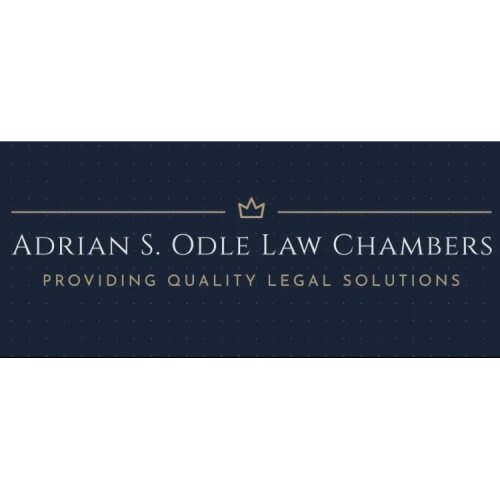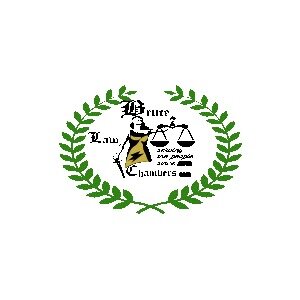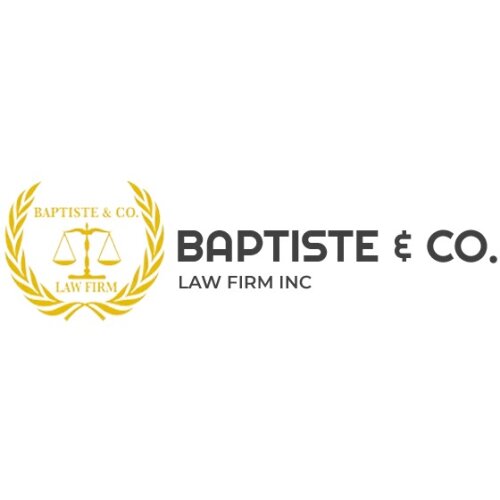Best Environmental Law & Compliance Lawyers in Kingstown
Share your needs with us, get contacted by law firms.
Free. Takes 2 min.
List of the best lawyers in Kingstown, Saint Vincent and the Grenadines
About Environment Law in Kingstown, Saint Vincent and the Grenadines
Environment law in Kingstown, Saint Vincent and the Grenadines, centers around the protection and management of the country's diverse ecosystems, natural resources, and public health. With its lush tropical landscapes, abundant marine life, and reliance on agriculture and tourism, the region places a strong emphasis on sustainable environmental practices. The laws encompass a range of issues, from land use planning and pollution control to conservation of biodiversity and management of waste. These regulations are crucial in maintaining the delicate balance between economic development and environmental stewardship.
Why You May Need a Lawyer
There are numerous situations where individuals or businesses might require legal assistance in the field of environment in Kingstown, Saint Vincent and the Grenadines. Some common scenarios include:
- Land Development Issues: Navigating zoning and land use regulations can be challenging, especially for new developments.
- Compliance with Environmental Regulations: Businesses that produce waste or emissions may need guidance to ensure compliance with local laws.
- Environmental Impact Assessments (EIA): Large projects often require detailed environmental assessments, and legal advice can facilitate this process.
- Disputes over Natural Resources: Conflicts can arise over the use and allocation of resources, requiring legal intervention.
- Pollution or Contamination Claims: Legal recourse might be necessary for addressing damages or liability related to environmental harm.
Local Laws Overview
Environmental laws in Kingstown, Saint Vincent and the Grenadines are designed to protect the natural and built environment through statutory mechanisms and regulatory frameworks. Key aspects include:
- The Environmental Health Service Act: This aims to prevent and manage pollution and to promote public health.
- The Physical Planning Act: Governs land use and development, ensuring sustainable environmental practices are adhered to during planning and construction phases.
- The Fisheries Act: Manages and conserves marine resources, vital for the island's economy and biodiversity.
- Wildlife Protection Legislation: Protects endangered species and their habitats from exploitation and destruction.
Frequently Asked Questions
What is the role of Environmental Impact Assessments in development projects?
Environmental Impact Assessments (EIAs) are critical in evaluating the potential environmental effects of a proposed development, ensuring that steps are taken to mitigate negative impacts.
How can I ensure my business is compliant with environmental regulations?
Compliance can be ensured by staying informed about relevant laws, conducting regular audits, and consulting with environmental legal experts to align operations with statutory requirements.
What are the penalties for non-compliance with environment laws?
Penalties can range from fines and legal injunctions to project shutdowns and potential imprisonment, depending on the severity and nature of the non-compliance.
Can I appeal against an environmental decision made by authorities?
Yes, there are procedures in place to appeal decisions, often requiring legal representation to navigate the complexities of the appeals process effectively.
Is there support available for communities affected by environmental degradation?
Yes, various governmental bodies and NGOs offer support and advocacy for communities impacted by environmental issues, providing legal advice and assistance.
How does the law protect biodiversity in Saint Vincent and the Grenadines?
Legal frameworks, such as wildlife protection laws, are in place to safeguard habitats, protect endangered species, and regulate activities that threaten biodiversity.
What government bodies oversee environmental protection?
Key government bodies include the Ministry of Health, Wellness, and the Environment, and various regulatory agencies responsible for enforcing environmental laws.
Can citizens participate in environmental decision-making processes?
Yes, public participation is encouraged, especially in the EIA process, where community input is vital for informed decision-making.
What should I do if I come across an environmental violation?
Report the violation to the relevant authorities, such as the Environmental Health Services or a similar entity, and consider consulting legal counsel for further actions.
How important is sustainable development in local environmental law?
Sustainable development is a core principle, ensuring that economic growth does not compromise the ability of future generations to meet their needs.
Additional Resources
For those seeking further information or assistance, the following resources may be helpful:
- The Ministry of Health, Wellness, and the Environment: Provides information on environmental policies and programs.
- Environmental Health Services: Oversees compliance with health-related environmental regulations.
- Local Non-Governmental Organizations: Offer educational programs and advocacy related to environmental protection.
Next Steps
If you find yourself in need of legal assistance concerning environmental issues in Kingstown, Saint Vincent and the Grenadines, consider the following steps:
- Identify the specific legal issue or compliance requirement you need help with.
- Gather all relevant documentation, such as permits, compliance certificates, or any notices received from authorities.
- Consult with a lawyer specializing in environmental law to discuss your situation.
- Reach out to relevant government bodies or organizations for additional information and support.
- Stay informed about any changes in the local environmental laws and regulations that may affect your case or compliance needs.
Lawzana helps you find the best lawyers and law firms in Kingstown through a curated and pre-screened list of qualified legal professionals. Our platform offers rankings and detailed profiles of attorneys and law firms, allowing you to compare based on practice areas, including Environmental Law & Compliance, experience, and client feedback.
Each profile includes a description of the firm's areas of practice, client reviews, team members and partners, year of establishment, spoken languages, office locations, contact information, social media presence, and any published articles or resources. Most firms on our platform speak English and are experienced in both local and international legal matters.
Get a quote from top-rated law firms in Kingstown, Saint Vincent and the Grenadines — quickly, securely, and without unnecessary hassle.
Disclaimer:
The information provided on this page is for general informational purposes only and does not constitute legal advice. While we strive to ensure the accuracy and relevance of the content, legal information may change over time, and interpretations of the law can vary. You should always consult with a qualified legal professional for advice specific to your situation.
We disclaim all liability for actions taken or not taken based on the content of this page. If you believe any information is incorrect or outdated, please contact us, and we will review and update it where appropriate.











